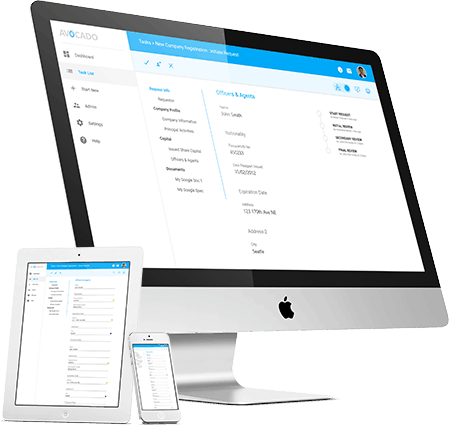The Singapore Government continues to harmonize its regulations in accordance with international standards and implement laws that will work in the best interest of the business. In this post, we review recent regulatory changes introduced by the Singapore Government which may be relevant to Singapore business.
Company Laws Amended to Improve Compliance and Transparency
Following public consultations in October 2021, the Singapore Parliament passed the Corporate Registers Bill on January 10, 2022, which amends the Companies Act and the Limited Liability Partnerships Act. The law is meant to strengthen corporate governance to align it closer to the Financial Action Task Force (FATF) international standards for combating money laundering and terrorism financing threats.
Below are outlined the key amendments to the laws.
Register of Nominee Shareholders
One of the main changes includes the requirement for both domestic and foreign companies to keep a non-public registry of nominee shareholders and their nominees. Companies are obliged to update this register within seven days after receiving the information from nominee shareholders.
Nominee shareholders must notify when they become or cease to be a nominee shareholder, as well as provide prescribed particulars of their nominators to the company within 30 days after any such changes.
Previously, shareholders could hold shares on behalf of another person without having to identify the other person, as they were not shareholders on record. This will address the lack of transparency about the identity of persons who actually control the shares, which has been a gray area in Singapore’s fight against money laundering and terrorism financing.
Identifying Registrable Controllers
Currently, companies and limited liability partnerships (LLPs) are already obliged to maintain a register of registrable controllers. Newly introduced amendments stipulate that local and foreign companies and LLPs must identify individuals with executive capacity as registrable controllers even if they have no registrable controller, or have not been able to identify such.
The term registrable controllers refers to individuals in management positions with executive control (e.g. directors, chief executive officers, partners) and other persons or companies that may control daily company operations. The individual’s particulars must be recorded within two business days.
These changes aim to enhance the transparency of beneficial ownership and control of companies and LLPs in Singapore and align corporate governance to international standards.
Updated Timelines
Foreign companies must update their register of members within 30 days after any change in the particulars. Before the amendments, foreign companies were already obliged to maintain such a register, but without the prescribed timeline for making updates.
Singapore companies must update their register of nominee directors within 7 days after the date when a director ceased to be a nominee or in case of any change in an individual’s particulars. Local companies are required to maintain a register of nominee directors, but before the updated law, there was no prescribed deadline for such updates.
In view of these changes, make sure you don’t miss the deadlines and keep your company’s records in order. If you require any help with your company’s compliance, contact our team for support.
Singapore’s Parliament Passes Gambling Duties Bill
In July 2021, the Ministry of Home Affairs announced plans to amend gambling legislation to enhance and harmonize the tax administration and enforcement provisions of Singapore’s gambling regulations. Following public consultation on the proposed amendments, the Gambling Duties Bill was passed in Parliament after the second reading on January 10, 2022.
The Bill harmonizes the law governing the levy and collection of gambling fees, increases fines and penalties for failure to pay the charges, and redefines key terms in gambling-related legislation. The Bill introduces several related amendments to the Casino Control Act, the Private Lotteries Act, the Singapore Totalisator Board Act, and the Goods and Services Tax Act, and repeals the Betting and Sweepstakes Duties Act. The new law also amends the Inland Revenue Authority of Singapore Act to facilitate the digitalization of tax administration.
The Bill will take effect on March 1, 2022, and introduces a new tax structure applicable to a casino operators in Singapore by amending the Casino Control Act:
- The tax rate for the first S$2.4 billion of annual gross revenue from premium gaming players will be 8% instead of 5%, and 12% for gross gaming revenues going over this limit.
- The tax rate for the first S$3.1 billion of annual gross revenue from any other gaming players will be 18% instead of 15%, and 22% for gross gaming revenues going over this limit.
These tax rates are subject to certain development targets that should be met by the casino operator. If those targets are not satisfied, a flat rate of 12% will be applicable on gross revenue from premium gaming players and 22% on gross revenue from any other gaming players.
The legislation also introduced a 10-year moratorium on further tax increases, meaning the existing tax rates will not be changed until 1 March 2032.
Monetary Authority Issues Guidelines to Limit Cryptocurrency Trading by Public
On January 17, 2022, the Monetary Authority of Singapore (MAS) issued guidelines restricting marketing and advertising activities of Digital Payment Token (DPT) service providers that target the general public in Singapore.
Basically, MAS’s new guidelines clarify that DPT service providers are able to promote their services on their own corporate websites, mobile applications, and official social media accounts.
Under the new MAS guidelines, promoting and advertising of DPT services are restricted:
- In public areas (i.e. public transport, websites, public transport venues, public events, roadshows, etc.), including public social media platforms, broadcast media, and periodical publications.
- Through engagement of third parties (i.e. social media influencers) to the general public in Singapore.
Aside from prohibiting public advertisements of DPT services, the MAS also intends to ban providing physical crypto-enabled teller machines in public areas in Singapore.
These guidelines reaffirm the MAS’s previous warnings regarding the high risk involved in DPT trading activities. As the prices of DPTs are subject to sharp speculative swings, this could encourage people to trade DPTs on the spur of the moment, without fully understanding the risks. MAS’s guidelines are intended to ensure that crypto advertisements reflect all the inherent risks associated with investing in the cryptoasset sector.
About CorporateServices.com
Headquartered in Singapore, CorporateServices.com, empowers global entrepreneurs with information and tools necessary to discover Singapore as a destination for launching or relocating their startup venture and offers a complete range of company incorporation, immigration, accounting, tax filing, and compliance services in Singapore. The company combines a cutting-edge online platform with an experienced team of industry veterans to offer high-quality and affordable services to its customers. Contact Us if you need assistance with setting up a new Singapore company or if you would like to transfer the administration of your existing company to us.
Share this Post

